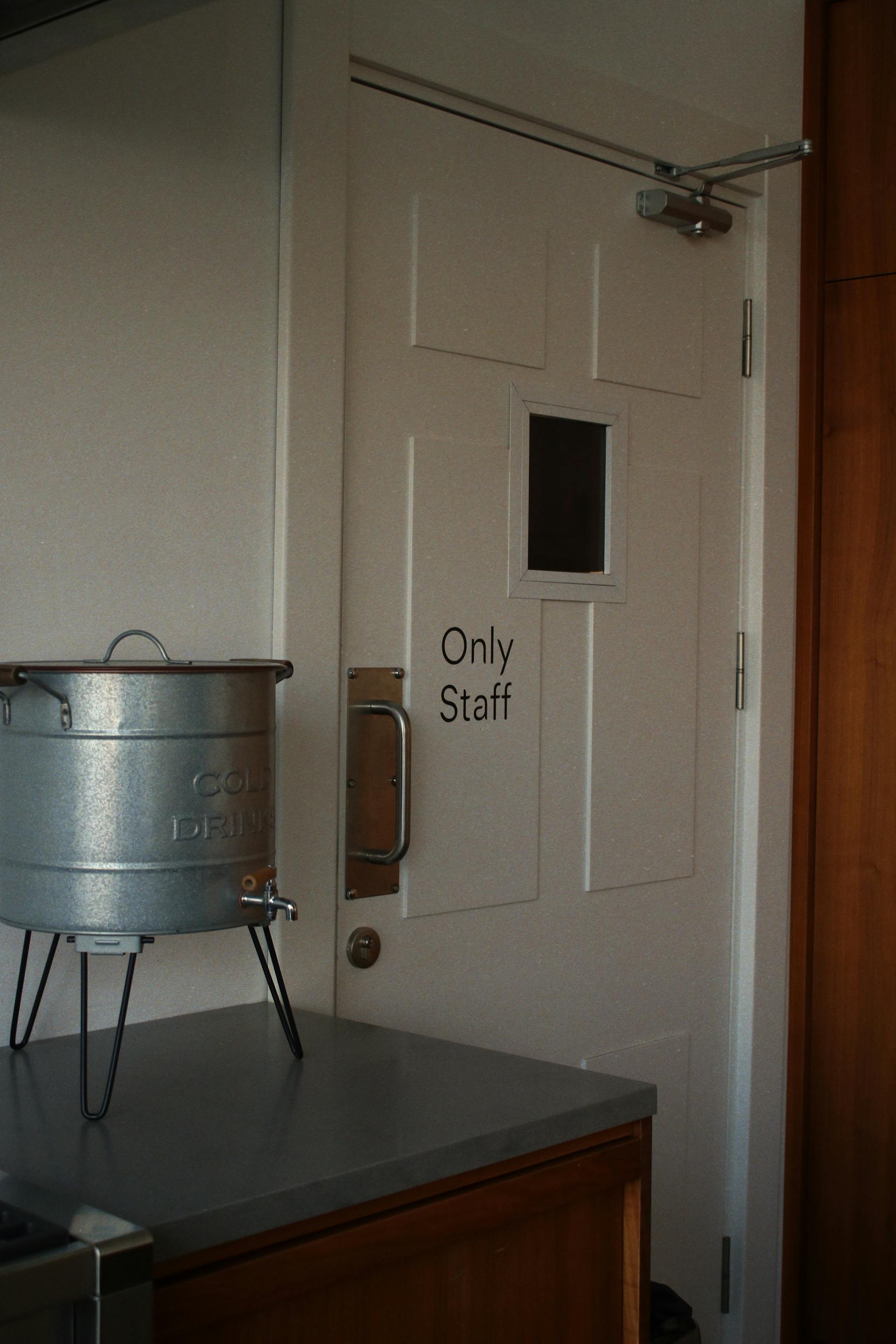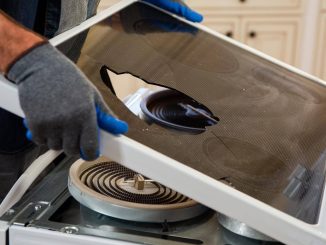
“Jane, we need to talk about the vacation.”
I nodded, curious.
We had been home for two days now. Back from our trip to the seaside, staying in a luxurious resort. It was almost the break I needed, minus the fact that I had the Smiths’ three children, and their friends, the Johnsons’ two sons to care for as well.
I was just doing my job in a fancier location.
“Of course,” I said. “It was a lovely trip. Thank you again for inviting me.”
“Yes, well,” Mrs. Smith started. “We need to discuss the plane tickets. When will you be able to return the $1000?”
I blinked. I was sure that I had misheard her.
“Sorry, $1000? For the tickets? What?”
“Yes, for the tickets, Jane,” she spoke slowly as if I was stupid. “We spent a lot on them, and we thought you’d be grateful enough to pay us back.”
My heart raced. I didn’t have that kind of money to spare. I was their full-time nanny, with a mother to care for at home.
“But you told me that everything was sorted. You said, ‘Don’t worry about it, Jane. We’ve got it all covered.’”
Mrs. Smith’s expression hardened. Mr. Smith gazed at me.
“That was before the Johnsons refused to sign a business deal with Craig. That was the entire purpose of the holiday. Mr. Smith and I needed to woo them. So, there’s no need to seem generous now, Jane. You have exactly one week to return the money, or it will be taken from your pay.”
I was stunned. The room felt like it was spinning.
“But… I can’t afford that, Mrs. Smith,” I admitted. “Most of my salary goes to the rent at home and my mother’s medication. I can’t take that away from her. And you didn’t mention anything about paying you back!”
“That’s not our problem, Jane. One week,” Mr. Smith reiterated, reaching for a croissant from the tea tray left for Mrs. Smith. With a wave of his hand, he signaled the end of the discussion.
That night, I sat in my tiny room a few feet away from the Smiths’ house. I was seething. How could they do this? I needed a plan, and I needed it fast.
Then it hit me: the Smiths cared deeply about their social standing and their reputation.
“Of course, that’s all they care about,” I muttered to myself as I brushed my teeth before bed. “But I can use that to my advantage.”
The next day, after I dropped the kids off at school, I created a fake email account. I drafted a polite but detailed message about my experience, making sure to be clear without naming any names.
But there were enough telltale signs pointing to the Smiths, from their cars to the kids, to the gold facial appointments that Mrs. Smith bragged about.
Thereafter, I sent it to the key people in their social circle, including the other influential families that the Smiths wanted to be in league with.
“I just don’t understand what they want from us,” I overheard Mrs. Smith say into the phone later that day. “Eva asked me if everything is true, but I don’t know what she’s talking about.”
A few days later, the gossip started spreading. The Smiths’ dirty little secret on how they treated “their staff” was out, and naturally, their reputation took a hit.
Mrs. Smith called in a masseuse to soothe her muscles.
“Just let them into the spa when they arrive, Jane,” she said. “I need all the help I can get.”
Later that day, when I went to pick the kids up from school, the other nannies were hanging about, waiting for the bell to ring.
“Did you read the email about the Smiths?” one of the nannies said. “Jane, are they really like that?”
I nodded.
“They’re good parents, but they’re horrible people,” I admitted, not wanting to give away that I was the person who sent out the email.
“How long will you work for them?” another asked me. “I couldn’t live or work under those circumstances. Rich people need to learn that respect for them is earned, too.”
I smiled.
The nannies went back and forth as we waited. And through their chatter, I discovered something interesting about Mrs. Smith.
Turns out that my employer had a habit of “borrowing” items from her friends and never returning them.
“An entire Gucci handbag, Jane,” Mina said. “Mrs. Smith asked my ma’am if she could borrow it for a fundraising gala two months ago.”
“That’s ridiculous!” I said, shocked. “I didn’t know that she was capable of that sort of thing. But she doesn’t like me getting too close to her things anyway.”
A few days later, Mrs. Smith held one of her ladies’ luncheons. It was a monthly event that she loved hosting, but this time it was only two weeks into the month.
“I need this to go well, Jane,” she said as I cut fruit up for the kids. “So, you need to attend it. The kids will be at school. Everything will be catered for. Just walk around and talk to the women. Make us seem human.”
I knew that she was puzzling. She must have heard more than enough through the grapevine.
During the event, I walked around as requested of me. But I wasn’t going to let this opportunity slip. And I had nothing to lose. The Smiths were probably going to fire me at the end of the week when I couldn’t make the $1000.
“We’ll deal with it, darling,” my mother coughed into the phone when I told her the truth of the matter.
At the luncheon, I walked around, casually mentioning to the ladies how much I admired Mrs. Smith’s collection, making sure that I spoke to Eva, Mina’s employer.
“Mrs. Smith has a stunning handbag similar to yours,” I said. “Gucci. Did she lend you this one? She’s always telling me that she lends her things out because she has so much.”
Eva looked at me over the top of her champagne glass.
“Is that so, Jane?” she asked, her eyes narrowing.
Whispers started circulating. By the end of the luncheon, Mrs. Smith’s reputation for borrowing without returning was the hot topic.
The next morning, her friends began asking for their things back.
Mrs. Smith was mortified.
During dinner the next night, Mr. Smith called me to the table, asking me to join them.
“Thank you, but I usually wait for Ivy and Melanie to eat,” I said politely, mentioning the chef and her helper.
“No, sit with us,” he insisted.
I obliged.
Despite his tone, I hoped that maybe he was going to tell me that the money could be forgotten. And that everything would return as normal.
“It has come to my attention that an anonymous email has gone out,” he said, cutting into his steak.
“A disgusting email,” Mrs. Smith added, taking a long sip of her wine.
“Did you have anything to do with it?” he asked me, his eyes trying to coax a confession out of me.
I shook my head, looking down at my plate.
“Then that settles it,” he said, knowingly. “You’re dismissed. You can pack up and get out tomorrow.”
I did exactly as I was told and moved back home. A week later, Mrs. Johnson called me.
“Jane, can you come over for tea?” she asked warmly.
“Of course, Mrs. Johnson,” I replied, curious about the nature of the invitation.
As we sat in her luxurious living room, she looked at me with genuine concern.
“I heard about what the Smiths did to you. It’s disgraceful.”
I nodded, trying to keep my composure.
“Well,” she continued. “We’ve decided to cut ties with the Smiths entirely. And we’d like to offer you a job. Better pay, better working conditions. We could use someone like you for our kids.”
I was stunned.
“Of course!” I exclaimed. I needed the job desperately.
“You’ve earned it,” she smiled. “The boys loved having you watch them during the holiday. And somehow, you got Jonathan to eat his peas!”
I don’t know how the Smiths reacted to me working for the Johnsons, but I hoped that they felt betrayed.
What would you have done?
Um homem rico fingiu ser garçom e convidou uma mulher para um encontro no restaurante que ele possui

Quando o rico restaurateur Nate conhece a pé-no-chão Beth em um posto de gasolina, seu charme o pega desprevenido. Intrigado, mas cauteloso com decepções amorosas do passado, Nate a convida para um encontro com uma reviravolta. Será que sua farsa de ser garçom em um restaurante que ele possui revelará suas verdadeiras intenções?
Respingos de tinta neon cobriam minhas roupas, e eu não percebi o quão ridículo eu parecia até que parei no posto de gasolina. Entrei, sentindo-me dolorido e um pouco tonto de uma partida intensa de paintball, e foi quando eu a vi.
O caixa.

Um caixa em um posto de gasolina | Fonte: Midjourney
Seu cabelo loiro estava preso em um coque bagunçado, alguns fios escapando ao redor do rosto. Quando ela me notou e sorriu, juro que meu coração deu uma cambalhota.
“Se o Exterminador do Futuro entrasse agora”, ela provocou, “ele definitivamente não pediria suas roupas”.
Pisquei. Por um segundo, não sabia se ria ou se derretia no chão.
“Eu… eu estava apenas jogando paintball,” respondi timidamente. Minhas bochechas queimaram no que eu só podia esperar que não fosse um rubor óbvio.

Um homem tímido | Fonte: Midjourney
Ela sorriu mais largamente, seus olhos brilhando de diversão. “Sério? Esse foi meu primeiro palpite.” Ela me olhou de cima a baixo, fazendo um show de inspecionar o dano que a tinta tinha feito em minhas roupas. “Você ganhou, ou…?”
“Uh, sim. Meu time venceu.” Dei de ombros, tentando parecer casual, embora fosse difícil me sentir composto sob seu olhar brincalhão.
“Bem, parabéns, soldado. Precisa de um lanche da vitória?” Ela piscou para mim e acenou para a prateleira de doces, seu tom ainda pingando com falsa seriedade.

Uma mulher trabalhando como caixa de posto de gasolina | Fonte: Midjourney
Não consegui deixar de rir. Essa mulher — Beth, dizia seu crachá — era uma lufada de ar fresco. Não sei o que deu em mim, mas a próxima coisa que percebi foi que deixei escapar: “Você gostaria de jantar comigo algum dia?”
Ela piscou, o sorriso desaparecendo levemente enquanto a surpresa brilhava em seus olhos. Por um momento, temi ter interpretado tudo errado. Mas então ela inclinou a cabeça e seu sorriso voltou com força total.
“Certo. Claro… só não jogue paintball, ok?”

Um caixa sorridente de posto de gasolina | Fonte: Midjourney
Nós trocamos números, e eu saí daquele posto de gasolina com um encontro para esperar ansiosamente. Eu estava animado, mas não demorou muito para a ansiedade se instalar.
Já fui queimado muitas vezes antes. As mulheres estavam mais interessadas na ideia de Nate, o rico dono de restaurante do que em Nate, o homem que gostava de bandas indie obscuras e lia mangás. Então, eu criei um pequeno teste. Talvez fosse loucura, mas eu tinha que saber.
Convidei Beth para meu restaurante italiano de luxo no centro da cidade. Era a joia da coroa do meu império e agora também seria o palco no qual eu exporia as verdadeiras intenções de Beth.

O interior de um restaurante de luxo | Fonte: Midjourney
Eu assisti do outro lado da sala enquanto Beth entrava com um vestido vermelho simples que a fazia parecer linda sem esforço algum. A equipe já sabia do plano, então corri para cumprimentá-la, meu coração batendo forte.
“Ei,” eu disse, guiando-a para uma mesa de canto. “Estou tão feliz que você veio. Eu guardei a melhor mesa para nós.”
Beth sorriu, olhando ao redor. “Ah? Você vem aqui com tanta frequência que sabe qual mesa é a melhor?”

Uma mulher falando com seu companheiro | Fonte: Midjourney
Eu ri enquanto me sentava em frente a ela, mexendo no guardanapo. “É, eu trabalho aqui. Acabei de terminar meu turno, na verdade.”
Os olhos dela piscaram de surpresa, mas seu sorriso característico rapidamente os substituiu. “Sério? Eu sempre quis ser garçonete. Talvez eu entre para um turno depois do jantar.”
Eu ri nervosamente, observando sua reação de perto. “Eu não recomendo. O pagamento é horrível, e as horas? Brutais .”
Como se fosse uma deixa, um dos meus garçons se aproximou com os cardápios e piscou sutilmente para mim.

Um homem sentado à mesa com seu par | Fonte: Midjourney
“Bom te ver, Nate. Ainda se recuperando daquela correria do almoço?” ele perguntou, desempenhando seu papel perfeitamente.
“Sim, mal sobrevivi”, eu disse com um sorriso forçado.
O jantar chegou, e logo estávamos conversando e rindo como velhos amigos. Ela me contou sobre seu amor por livros, e como ela costumava querer escrever, mas acabou trabalhando no posto de gasolina para ajudar sua mãe.
Ela era engraçada e perspicaz. Seu humor me pegava desprevenido a cada momento e eu estava completamente encantado por ela.

Uma mulher em um restaurante | Fonte: Midjourney
Estar com ela parecia… fácil.
Conforme a sobremesa se aproximava, meu gerente de restaurante, Tom, veio até mim, parecendo furioso. Claro, era tudo parte do ato, mas Beth não sabia disso.
“Nate!” Tom retrucou, me encarando. “Você pulou os últimos 15 minutos do seu turno. Que diabos? Volte para a cozinha e lave a louça, ou você está demitido! ”
Os olhos de Beth se arregalaram, e eu pude ver o choque dela.

Uma mulher de olhos arregalados | Fonte: Midjourney
Beth se levantou, seu rosto suavizando com preocupação. “Ei, está tudo bem. Se você precisa ir, vá. Nós sempre podemos—”
“Sinto muito mesmo”, interrompi, sentindo o peso da mentira. “Vou ter que terminar lá atrás. Eu, uh, te mando uma mensagem depois?”
“Claro”, ela respondeu com uma piscadela.
E com isso, eu me desculpei, indo em direção à cozinha, minha mente correndo. Eu precisava de tempo para pensar e planejar meu próximo movimento, mas eu mal estava lá há dois minutos quando a porta da cozinha rangeu ao abrir.

Entrada de funcionários na cozinha de um restaurante | Fonte: Pexels
Beth entrou, seu rosto brilhando com uma mistura de diversão e determinação.
“Você ainda não começou?” ela provocou, arregaçando as mangas. “Vamos. Vamos lavar esses pratos juntos e depois dar uma volta no píer.”
Olhei para ela, completamente chocada. Como eu tive tanta sorte? Uma onda de emoções tomou conta de mim. Estava claro agora que Beth realmente gostava de mim, o suficiente para lavar uma montanha de pratos sujos para que pudéssemos continuar nosso encontro no píer… como eu ia dizer a ela que tudo isso era um teste?

Um homem pensativo | Fonte: Midjourney
Os pratos tilintavam enquanto esfregávamos lado a lado, nossos cotovelos ocasionalmente batendo. A culpa me apunhalava cada vez que Beth sorria para mim como se isso fosse a coisa mais natural do mundo — estar no fundo de um restaurante de luxo, lavando pratos depois de um primeiro encontro.
Eu não conseguia parar de olhar para ela, me perguntando como alguém como ela podia ser tão indiferente a tudo.
Depois que terminamos, Beth limpou as mãos no vestido, completamente imperturbável pelas manchas de água. Ela olhou para mim com um brilho brincalhão nos olhos.

Uma mulher sorridente na cozinha de um restaurante | Fonte: Midjourney
“Bem, não posso dizer que esperava acabar com os cotovelos na espuma hoje à noite, mas não foi nada mal. Então, o que acontece agora? Vamos caminhar até o píer ou você vai me fazer limpar a cozinha também?”
Eu ri, mas o som ficou preso na minha garganta. Eu tinha que confessar a ela. Era agora ou nunca.
“Beth, preciso te contar uma coisa”, eu disse, minha voz um pouco séria demais para o momento.
Ela inclinou a cabeça, seu sorriso desaparecendo um pouco. “Ok…?”

Uma mulher sorrindo incerta | Fonte: Midjourney
Respirei fundo, a verdade pronta para explodir de mim. “Eu não sou um garçom. Bem, eu costumava ser, mas não sou mais. Na verdade, sou o dono deste lugar. Sou dono deste restaurante e de outros dois na cidade.”
Beth piscou, suas sobrancelhas se unindo em confusão. “Espera… o quê?”
“A coisa toda hoje à noite foi uma armação,” admiti, a culpa rastejando em minha voz. “Eu queria ver se você gostava de mim pelo que eu sou, não pelo dinheiro ou pelo restaurante. Eu sei que é loucura, mas eu já fui queimado antes, e não queria arriscar de novo.”

Um homem culpado | Fonte: Midjourney
Por um momento, Beth apenas ficou ali, sua expressão ilegível. Meu coração batia forte no peito enquanto o silêncio se estendia. Então, ela cruzou os braços e me lançou um olhar longo e penetrante.
“Então, deixa eu ver se entendi,” ela finalmente disse, seu tom cuidadosamente neutro. “Você mentiu para mim a noite toda porque achou que eu poderia ser… o quê? Uma interesseira?”
Estremeci. “Não foi assim. Eu só… Eu tive experiências ruins. Mas eu gosto tanto de você… Eu só não queria estragar tudo.”
Seu olhar suavizou-se um pouco, mas ainda havia um brilho de mágoa em seus olhos.

Uma mulher na cozinha com uma expressão magoada | Fonte: Midjourney
“Então, você estava me testando.”
“Eu sei que parece terrível, e é”, eu disse rapidamente, me aproximando. “Mas eu tinha que ter certeza de que você gostava de mim por mim.”
Beth ficou em silêncio por um momento, processando. Então ela balançou a cabeça com uma pequena risada incrédula.
“Então… eu passei no seu teste?”
Eu assenti sinceramente, sentindo o peso da noite se afastar dos meus ombros. “Com louvor.”

Um homem sério | Fonte: Midjourney
Ela sorriu de volta, e sua brincadeira retornou rapidamente. “Ah, e para que fique registrado — a comida do seu restaurante não é tão boa assim. Da próxima vez, vamos para outro lugar, um lugar onde não vamos acabar lavando louça, ok?”
Eu ri, o som ecoando pela cozinha vazia. “Você conseguiu.”
Aqui vai outra história: em um passeio em família, minha sogra trocou meu frango suave por uma opção extra-picante, me deixando humilhado em um restaurante lotado. Enquanto minha boca queimava e Linda sorria, decidi planejar um jantar que lhe ensinaria uma lição que ela nunca esqueceria!
Este trabalho é inspirado em eventos e pessoas reais, mas foi ficcionalizado para fins criativos. Nomes, personagens e detalhes foram alterados para proteger a privacidade e melhorar a narrativa. Qualquer semelhança com pessoas reais, vivas ou mortas, ou eventos reais é mera coincidência e não intencional do autor.
O autor e a editora não fazem nenhuma reivindicação quanto à precisão dos eventos ou à representação dos personagens e não são responsáveis por nenhuma interpretação errônea. Esta história é fornecida “como está”, e quaisquer opiniões expressas são as dos personagens e não refletem as opiniões do autor ou da editora.



Leave a Reply